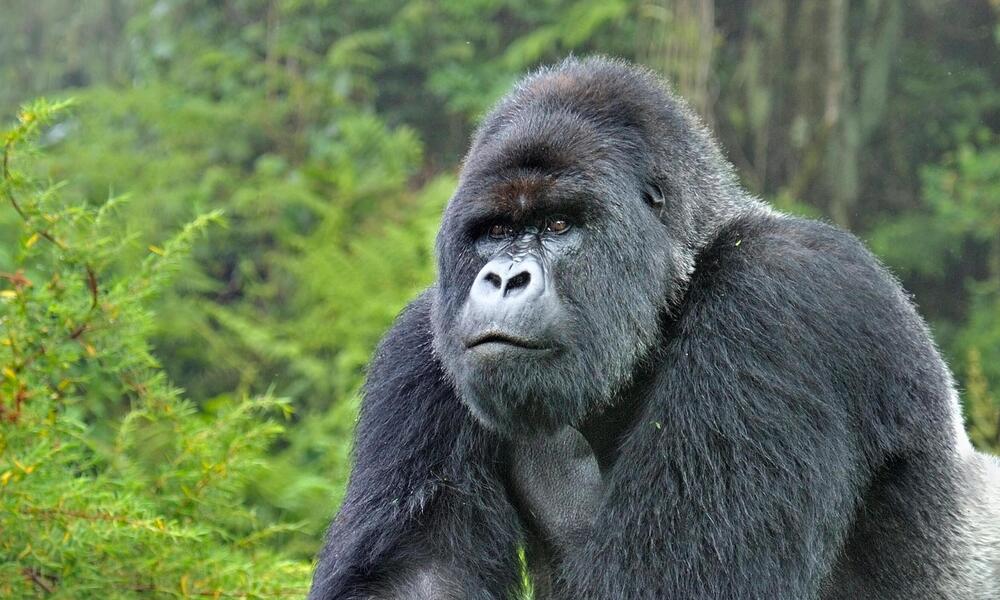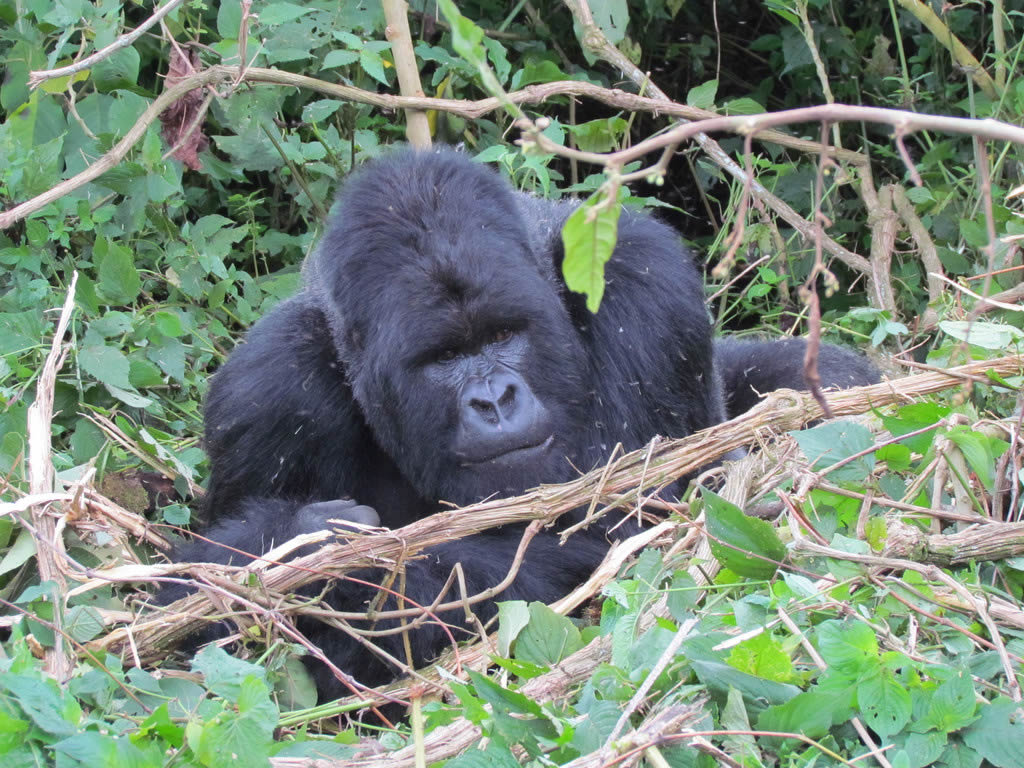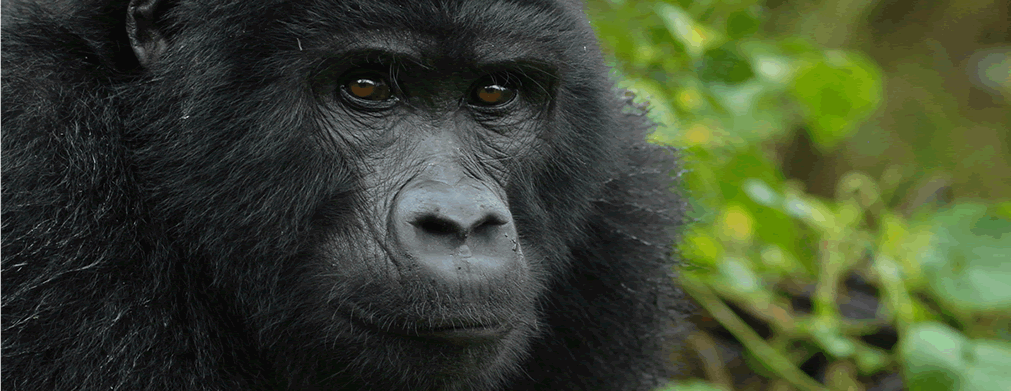How Does The Dominant Silverback Treat Infants In The Family?
Have you ever wondered how the dominant silverback treats the infants in the family? His biological and non-biological? Well, you are about to find out. As we have been made to believe that members of gorilla families live and move together all the time, spending the majority of the time traveling in search of the best plant species to consume, napping together, and building their nests together.

Mountain Gorilla (Gorilla beringei) silverback in Susa group, Rwanda
Opposed to the common representation of male mountain gorillas as aggressive individuals and chest-thumping creatures, they can be surprisingly gentle and even loving. Even the male gorillas that are not interested will allow young gorillas to climb on their back or even sit under them when foraging. These silverbacks allow young ones to do things to them that they wouldn’t allow even a sub-adult to get away with. Mountain Gorilla mothers normally have strong and tight bonds with their young ones and dominant silverbacks (who are usually fathers of the offspring in the family) are in charge of leading the family, offering protection in case of conflicts with wild or lone silverbacks (sometimes during encounters with other gorilla families), and providing attention to all members of the family.

silverback gorilla
Young mountain gorillas normally look for the dominant silverback who always is their father as well. Infants also stay in a close encounter with the family leader, leaning on him and making him part of their games. For mountain gorilla infants, having a close relationship with the dominant silverback (most times their father) is very important to their day-to-day life because in so doing, they are guaranteed protection and care thus increasing their chances of survival, in the event that their mother dies or leave the family. Silverbacks play a vital role in infant development, being role models and it is not uncommon to see silverbacks surrounded by all the young gorillas in the family and even playing, entertaining, and helping care for the individual babies. It is heart-warming to see how calm and gentle these Great Apes become when playing with their small infants.
In cases where the mother leaves the gorilla family or dies, it is the responsibility of dominant silverbacks to look after infants intensively, even allowing young gorillas to sleep in their nest and this is very crucial for maintaining warmth. The dominant silverback usually considers the babies that are born during his family leadership as his own offspring. This is sometimes true because dominant silverbacks don’t allow mating between subordinate silverbacks or younger males (blackbacks) and sexually active female gorillas, hence leading to conflicts in the family. These cases/conflicts are worse in families with more than one silverback.

silverback gorilla trekking
Another advantage that younger gorillas derive from being in close relationships with their fathers (dominant silverbacks) is the opportunity to be helped when entrapped in wire snares that need removal. Silverbacks have the capability of removing wire snares with their canine teeth. Dian Fossey, during her research and studies in Volcanoes National Park, documented a case of a dominant silverback removing a wire snare from a young gorilla.
However, on the other hand, dominant silverbacks have been discovered to intentionally kill infants (also referred to as infanticide) and this behavior is common among mountain gorillas. In most cases, infanticide happens after the female gorilla transfers to another gorilla family with her baby or when another silverback takes over the leadership of the family. Infanticide is usually seen as a way of shortening the time until the baby gorilla’s mother becomes fertile again hence conceiving for the new group leader. In so doing, the group leader will be able to sire his own offspring with the female gorilla.
